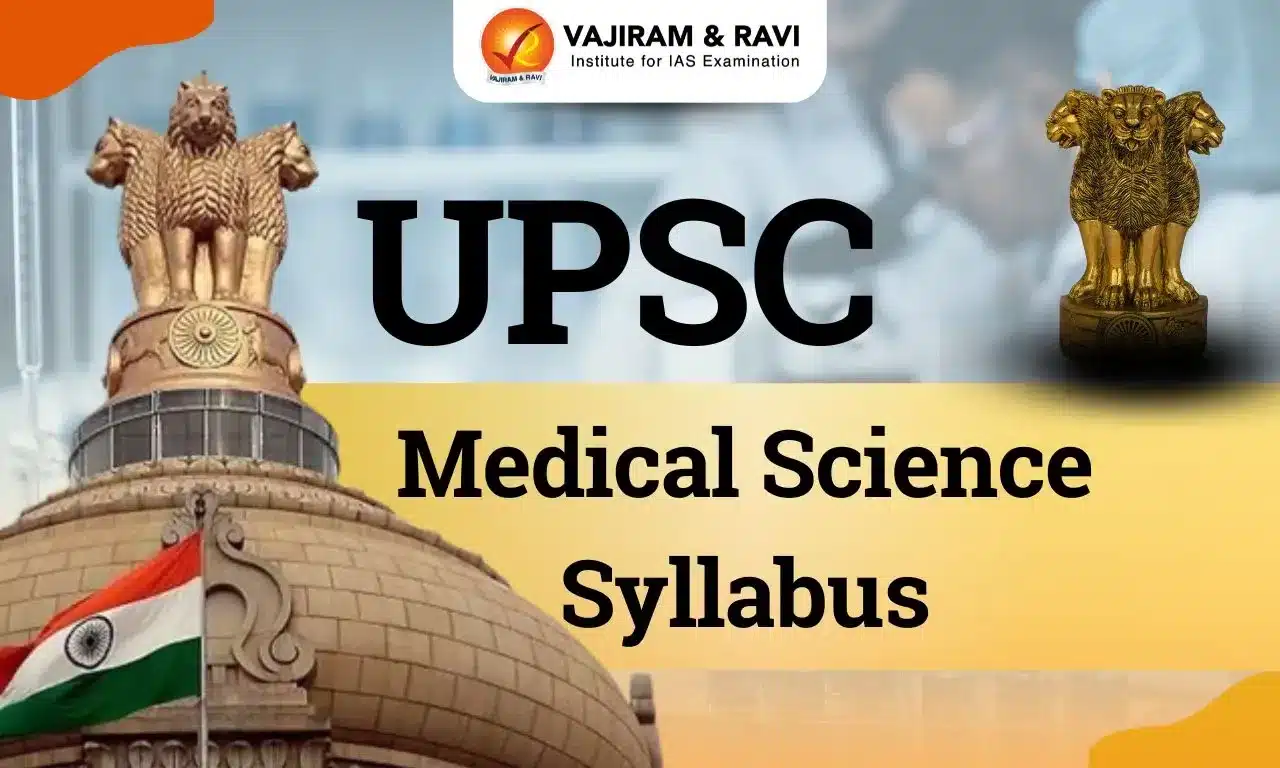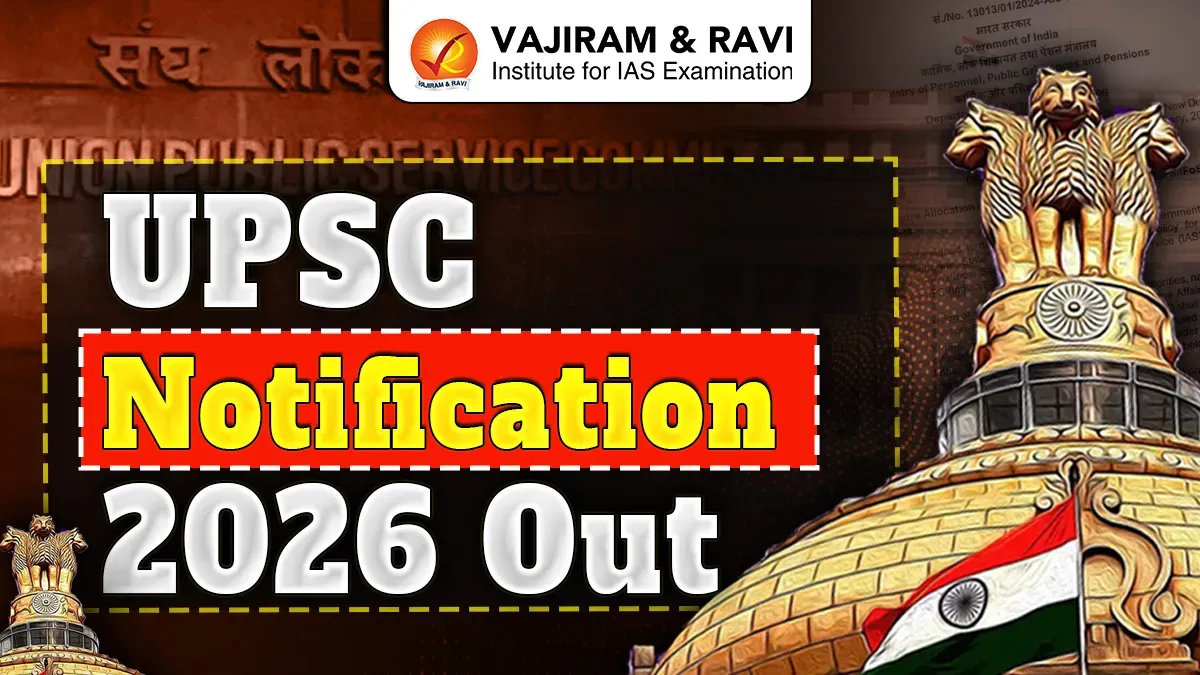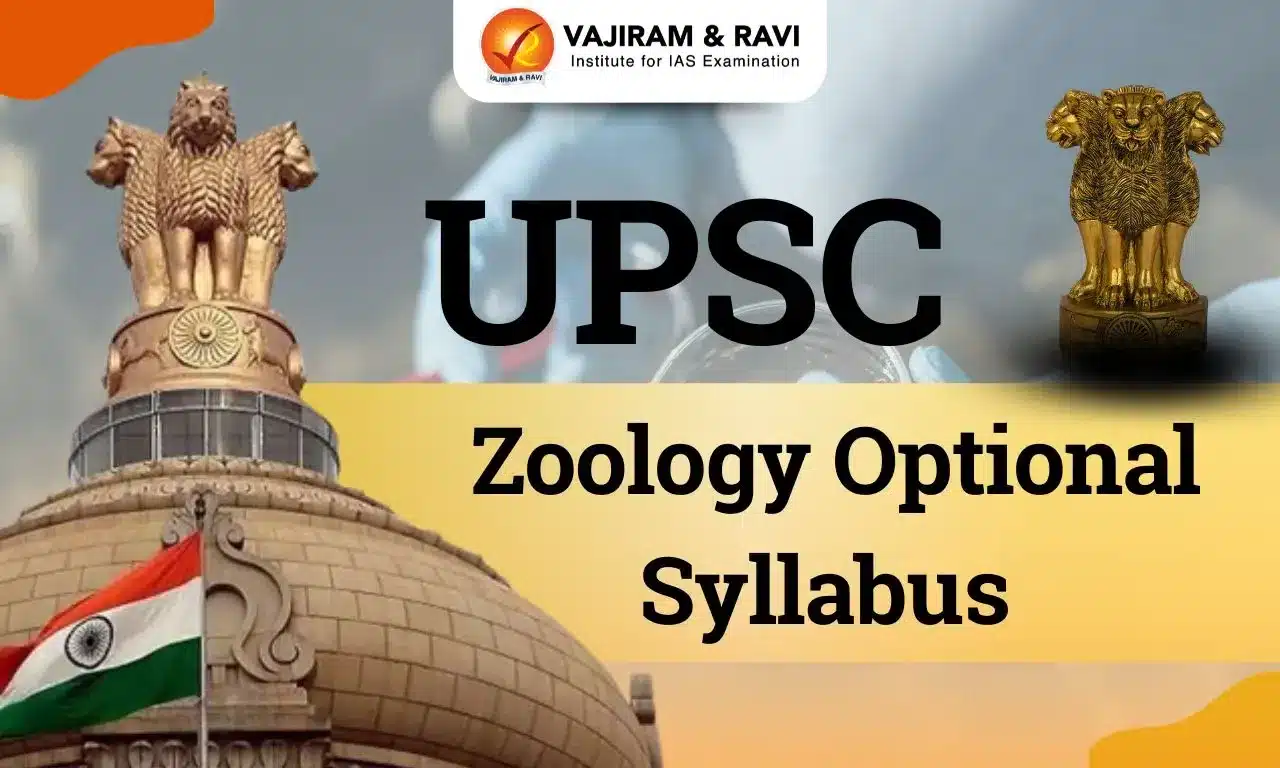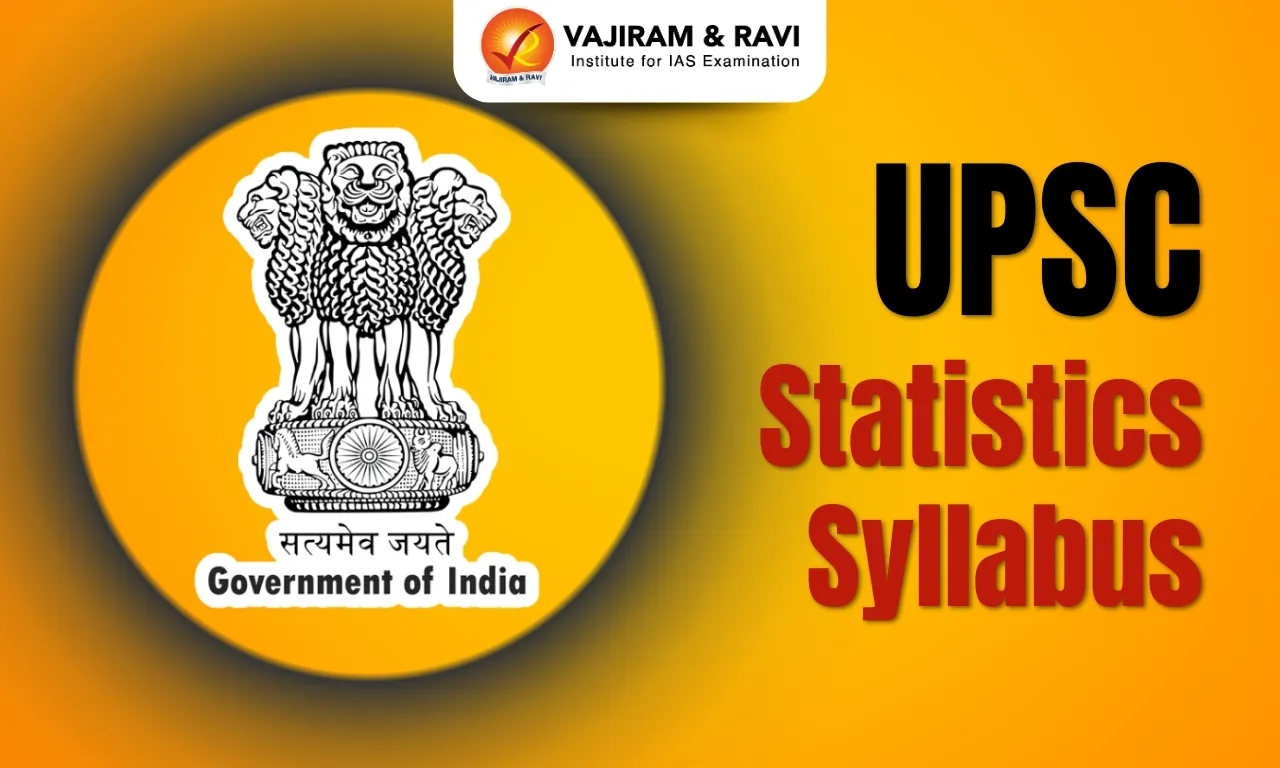Choosing Medical Science as an Optional Subject not only showcases your passion for healthcare but also allows you to delve deep into the intricate world of medicine and its applications in public administration.
In this article, we will discuss the UPSC Medical Science Syllabus, and its preparation tips. Whether you are a medical professional seeking to combine your expertise with civil service or an aspirant with a keen interest in healthcare, understanding the scope and depth of this optional subject is essential to your UPSC preparation.
UPSC Medical Science Syllabus 2026
The UPSC Medical Science Optional Subject has two papers - Paper I and Paper II in the CSE Main Examination. Each paper is worth 250 marks, for a total of 500 marks.
Here is the Syllabus of UPSC Medical Science Optional Subject:
UPSC Medical Science Syllabus for Paper 1
| UPSC Medical Science Syllabus PAPER 1 | |
| Human Anatomy |
knee.
of cerebrospinal fluid; Neural pathways and lesions of cutaneous sensations, hearing and vision; Cranial nerves distribution and clinical significance; Components of autonomic nervous system. |
| Human Physiology |
control of equilibrium, posture and muscle tone, descending pathways, functions of cerebellum, basal ganglia, Physiology of sleep and consciousness.
|
| Biochemistry |
|
| Pathology |
➢ Inflammation and repair ➢ Disturbances of growth and cancer ➢ Pathogenesis and histopathology of rheumatic and ischaemic heart disease and diabetes mellitus. ➢ Difference between benign and malignant tumours, primary and metastatic malignancies. ➢ Pathogenesis and histopathology of bronchogenic carcinoma, carcinoma breast, oral cancer, cancer cervix, leukaemia.
|
| Microbiology |
1. Humoral and cell-mediated immunity. 2. Diseases caused by and laboratory diagnosis of —
|
| Pharmacology |
|
| Forensic Medicine and Toxicology | Forensic examination of injuries and wounds; Examination of blood and seminal stains; Poisoning, sedative overdose, hanging, drowning, burns, DNA and fingerprint study. |
UPSC Medical Science Syllabus 2026 for Paper 2
| Medical Science Optional Syllabus PAPER 2 | |
| General Medicine |
|
| Paediatrics |
|
| Dermatology |
|
| General Surgery |
|
| Obstetrics and Gynaecology including Family Planning |
the newborn, Management of abnormal life and difficult labour. Management of small for date or premature newborn.
aspects.
of the uterus. |
| Community Medicine (Preventive and Social Medicine) |
|
UPSC Medical Science Optional Preparation Strategy
Here are some tips to prepare for the UPSC Medical Science syllabus for the Mains exam:
- Understand the syllabus. The first step is to thoroughly understand the syllabus of Medical Science for both Paper I and Paper II. This will help you to identify the topics that you need to focus on and to create a study plan.
- Choose the right books and resources. There are many different books and resources available for medical science students. It is important to choose the ones that are most relevant to the UPSC medical science syllabus and that are written in a clear and concise style.
- Make a study plan. Once you have chosen your books and resources, create a study plan that will help you to cover all of the material in the syllabus. Be sure to schedule in time for revision and practice.
- Take notes. As you are studying, take notes on the important points and concepts. This will help you to remember the material and to revise it more easily.
- Practice answering questions. The best way to prepare for the exam is to practise answering questions. You can do this by solving previous year's question papers and by taking mock tests.
- Discuss the topics with others. Joining Medical Science Optional Subject classes can help you prepare the subject in an organised manner
Here are some additional tips to prepare Medical Science as an Optional Subject:
- Focus on understanding the concepts rather than just memorising facts.
- Use diagrams and charts to help you to visualise the concepts.
- Take breaks while you are studying to avoid burnout.
- Get enough sleep and eat a healthy diet.
- Preparing for the UPSC Mains exam is a challenging task, but it is definitely possible with hard work and dedication. By following the tips above, you can increase your chances of success.
Books for UPSC Medical Science Optional Syllabus 2026
Choosing the right books is crucial for effectively preparing for the UPSC Medical Science optional syllabus. This subject, drawing from the comprehensive MBBS curriculum, requires a deep understanding of various medical topics. To assist aspirants in their preparation, we have compiled a list of essential books that cover the vast syllabus comprehensively.
Books for UPSC Medical Science Syllabus Paper-I
- Human Anatomy—B D Chaurasia
- Embryology from I B Singh;
- Human Physiology– Ganong; Guyton and A.K. Jain book
- Biochemistry– by U. Satyanarayana book.
- Pathology– Robbins, and Cotran
- Textbook of PATHOLOGY- Harsh Mohan
- Essentials of Medical Pharmacology-K D Tripathi
- Illustrated Reviews Pharmacology -Lippincott
- Microbiology– D R Arora
- Medical Parasitology- D R Arora
- Ananthanarayan and Paniker’s Textbook of Microbiology
- Essentials of Forensic medicine and Toxicology- Dr. K S Narayan Reddy
- Park Textbook of Preventive and Social Medicine- K Park
If you are planning to take UPSC 2022, you may like to go through the linked article.
Books for UPSC Medical Science Paper-II
- General Medicine textbook of medicine- S N Chugh
- Medicine: Prep Manual for Undergraduates- George Mathews
- Emergency medicine- S N Chugh.
- Manipal Manual of Surgery- K. Rajgopal Shenoy
- Clinical surgery- S Das.
- Pediatrics– Essential pediatrics by O P Ghai, Paul and Bagga.
- Practical Aspects Of Pediatrics- Dr. Mayoor K Chheda
- Illustrated Synopsis of Dermatology and Sexually Transmitted Diseases- Dr. Neena Khanna.
- Textbook Of Obstetrics-D.C. Dutt
| Other Related UPSC Optional Syllabus | ||
|---|---|---|
|
UPSC Animal Husbandry & Veterinary Science Optional Syllabus |
|
|
Last updated on February, 2026
→ UPSC Notification 2026 is now out on the official website at upsconline.nic.in.
→ UPSC IFoS Notification 2026 is now out on the official website at upsconline.nic.in.
→ UPSC Calendar 2026 has been released.
→ Check out the latest UPSC Syllabus 2026 here.
→ Join Vajiram & Ravi’s Interview Guidance Programme for expert help to crack your final UPSC stage.
→ UPSC Mains Result 2025 is now out.
→ UPSC Prelims 2026 will be conducted on 24th May, 2026 & UPSC Mains 2026 will be conducted on 21st August 2026.
→ The UPSC Selection Process is of 3 stages-Prelims, Mains and Interview.
→ Prepare effectively with Vajiram & Ravi’s UPSC Prelims Test Series 2026 featuring full-length mock tests, detailed solutions, and performance analysis.
→ Enroll in Vajiram & Ravi’s UPSC Mains Test Series 2026 for structured answer writing practice, expert evaluation, and exam-oriented feedback.
→ Join Vajiram & Ravi’s Best UPSC Mentorship Program for personalized guidance, strategy planning, and one-to-one support from experienced mentors.
→ UPSC Result 2024 is released with latest UPSC Marksheet 2024. Check Now!
→ UPSC Toppers List 2024 is released now. Shakti Dubey is UPSC AIR 1 2024 Topper.
→ Also check Best UPSC Coaching in India
UPSC Medical Science Syllabus FAQs
Q1. What is medical science subject in UPSC?+
Q2. What is the syllabus of UPSC for doctors?+
Q3. What is the syllabus for UPSC medical science 2024?+
Q4. Is it good to take medical science optional in UPSC?+
Q5. Which optional is best for doctors in UPSC?+
















